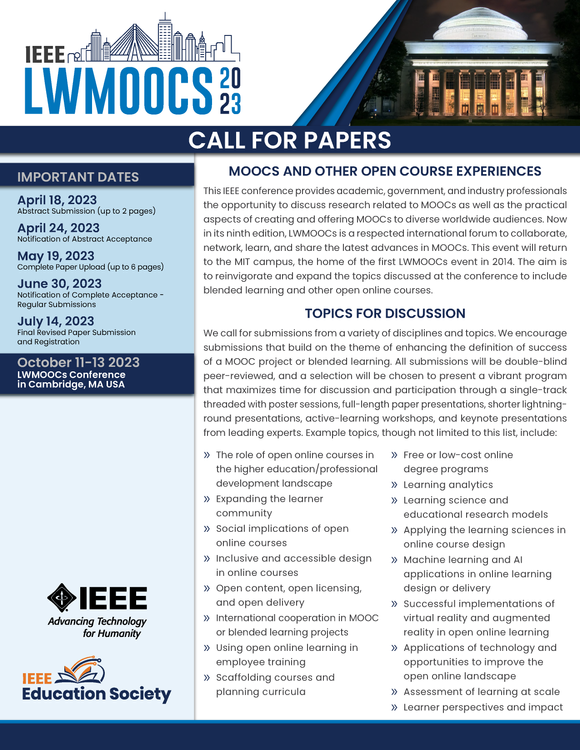MOOCS and Other Open Course Experiences
This IEEE conference provides academic, government, and industry professionals the opportunity to discuss research related to MOOCs as well as the practical aspects of creating and offering MOOCs to diverse worldwide audiences. Now in its ninth edition, LWMOOCs is a respected international forum to collaborate, network, learn, and share the latest advances in MOOCs. This event will return to the MIT campus, the home of the first LWMOOCs event in 2014. The aim is to reinvigorate and expand the topics discussed at the conference to include blended learning and other open online courses.
Topics For Discussion
We call for submissions from a variety of disciplines and topics. We encourage submissions that build on the theme of enhancing the definition of success of a MOOC project or blended learning. All submissions will be double-blind peer-reviewed, and a selection will be chosen to present a vibrant program that maximizes time for discussion and participation through a single-track threaded with poster sessions, full-length paper presentations, shorter lightning round presentations, active-learning workshops, and keynote presentations from leading experts.



